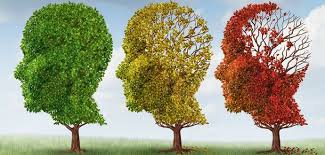Dementia refers to the condition or illness that’s responsible for causing memory issues. When diagnosed with dementia it not only helps identify the disease or disorder at play but also ensure that you receive appropriate treatment, care and support to maintain your quality of life for as long as possible.
The symptoms of dementia can vary depending on the type and may include difficulty remembering events, struggling to recognise familiar people or objects, experiencing challenges with mobility, loss of control over bladder and bowel functions as well as changes in mood and behaviour. While some symptoms may be more severe than others, most tend to worsen over time, resulting in a decline in abilities.
To determine the cause of memory difficulties, the doctor will initially review the medical history to assess if any underlying illnesses could have contributed to their development. Additionally they will inquire about when these changes started occurring, any accompanying symptoms experienced and whether there is a history of dementia within the family. Caring for those with dementia requires a special set of skills. To find out more about Care Jobs Gloucester, try visiting a site like takefivehealthcare.co.uk/job-search/care-assistant-jobs-gloucestershire/care-assistant-jobs-gloucester
A physical examination is commonly conducted along with assessments of strength and reflexes. Laboratory tests might be ordered to investigate vitamin deficiencies, thyroid issues, infections or other diseases that could manifest dementia symptoms. Furthermore a CT scan or MRI scan of the brain may be performed to check for blood clots, strokes, tumours or any other health conditions that could lead to memory problems.
There are medications known as acetylcholinesterase inhibitors that can slow down the progression of Alzheimers and other types of dementia. These inhibitors function by blocking the enzyme for breaking down acetylcholine. They can be administered orally or through injections. It’s important to discuss with your doctor the pros and cons of these medications.
Some conditions that exhibit dementia symptoms, such as pressure hydrocephalus (NPH) can be halted or reversed with appropriate treatment. NPH occurs when there is an accumulation of fluid in the brain’s spaces.
Various treatments are available to alleviate or prevent symptoms associated with dementia, including depression and anxiety. It is advisable to maintain social activities, follow a diet, limit alcohol consumption, avoid sedatives and sleeping pills and ensure sufficient high quality sleep. Taking care of your heart health to avoid any family history of disease can also help reduce the risk of developing dementia.





